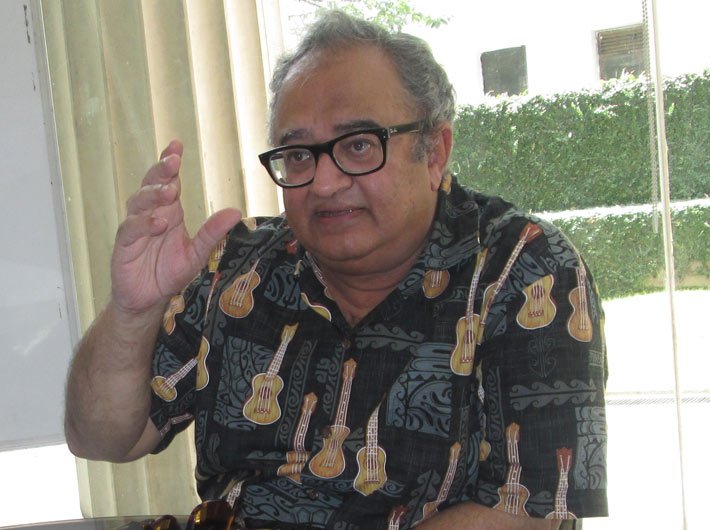The radical Islam has put the world in the middle of a war unto death, and it needs to be fought with reason. That is the diagnosis from Tarek Fatah, a journalist and author originally from Pakistan and now based in Canada.
After ‘Chasing a Mirage’, and ‘The Jew Is Not My Enemy’, Fatah has come out with his third book, ‘The Tragic Illusion of an Islamic State’ (Kautilya Books, New Delhi), and ahead of its launch he interacted with the editorial team of Governance Now on Thursday.
A thoroughly disillusioned leftist, he is on a mission to disillusion people about the dangers of Islam as an ideology of state. The left, the Hindu right, the Muslim elite – everybody is in the crosshairs as he targets contemporary myths and bares hard truths.
Referring to the distinction between the Islamic State and State of Islam, at the heart of his book, he first laughs it off as a word play, but then explains, “I am trying to deconstruct the whole notion, the fraudulent concept of the Islamic state. You don’t need any country to be a pious Muslim, no government stops you from fasting. But praying out in the streets instead of at home is a different matter.”
Fatah says India and Israel are the only countries with significant Muslim minorities, but their numbers are yet to translate into a critical mass that can stand up against fight the retrograde ways of the community, for example, the Muslim personal law. Moreover, in India, the paradox is that the very people – the Hindu right-wing, who speak out against this threat are the ones who create the ground for the same. “To prove yourself right, you create hostile environment.”
This is also a crisis of secularism in India, which has been distorted by both the right as well as the left – which wants to see the minority community only as victimised. “It is the moral bankruptcy of the left that has made it side with the Muslims,” he says. Fatah should know – he was a left-wing activist in Pakistan in the 1960s.
Thus, Fatah remarks, Gandhi and Nehru are ridiculed in India though they are not mocked even in Pakistan.
So, what is the way out for the community? Will education bring enlightenment? Fatah says there is little hope in that direction. He points out the fact that the suicide bombers have come largely from elite academic institutions. Indeed, he traces this dichotomy of education to the colonial era, which produced translations of holy books – before which the whole communities, largely illiterate, had no access to the scriptures. Thus, it was the newly educated generation that was swayed by the radicalised message of the scripture.
“Education is not the solution; wisdom is the solution,” he argues. Education has been only a great tool for the catastrophe that the world has been facing.
As for the catastrophe, he says, “The Sharia is influencing the law not only in India, but also in the UK.” However, “You cannot have public law based on the beliefs.” The Muslim personal law, based on the Sharia, allows, for example, marital rape and promotes sex slavery, Fatah says, giving many more illustrations of how that law is against women.
Coincidentally, marital rape is something the Hindu right too will have trouble in acknowledging. The minister of state for home, Haribhai Chowdhury, said in parliament only a day before that the marriage in India is sacrosanct and therefore the concept of marital rape does not apply in this country. Isn’t this an instance of how the Hindu right-wing is a mirror image of radical Islam?
“There is a difference, though,” Fatah argues. “This is the response to 700-800 years of servitude. Damage has been done to the north Indian psyche. Yet, it is the worst form of the Stockholm Syndrome that Nehru chose to name a main street in Delhi after Aurangzeb – the worst of the Mughal rulers. Think of the Lodi road!”
